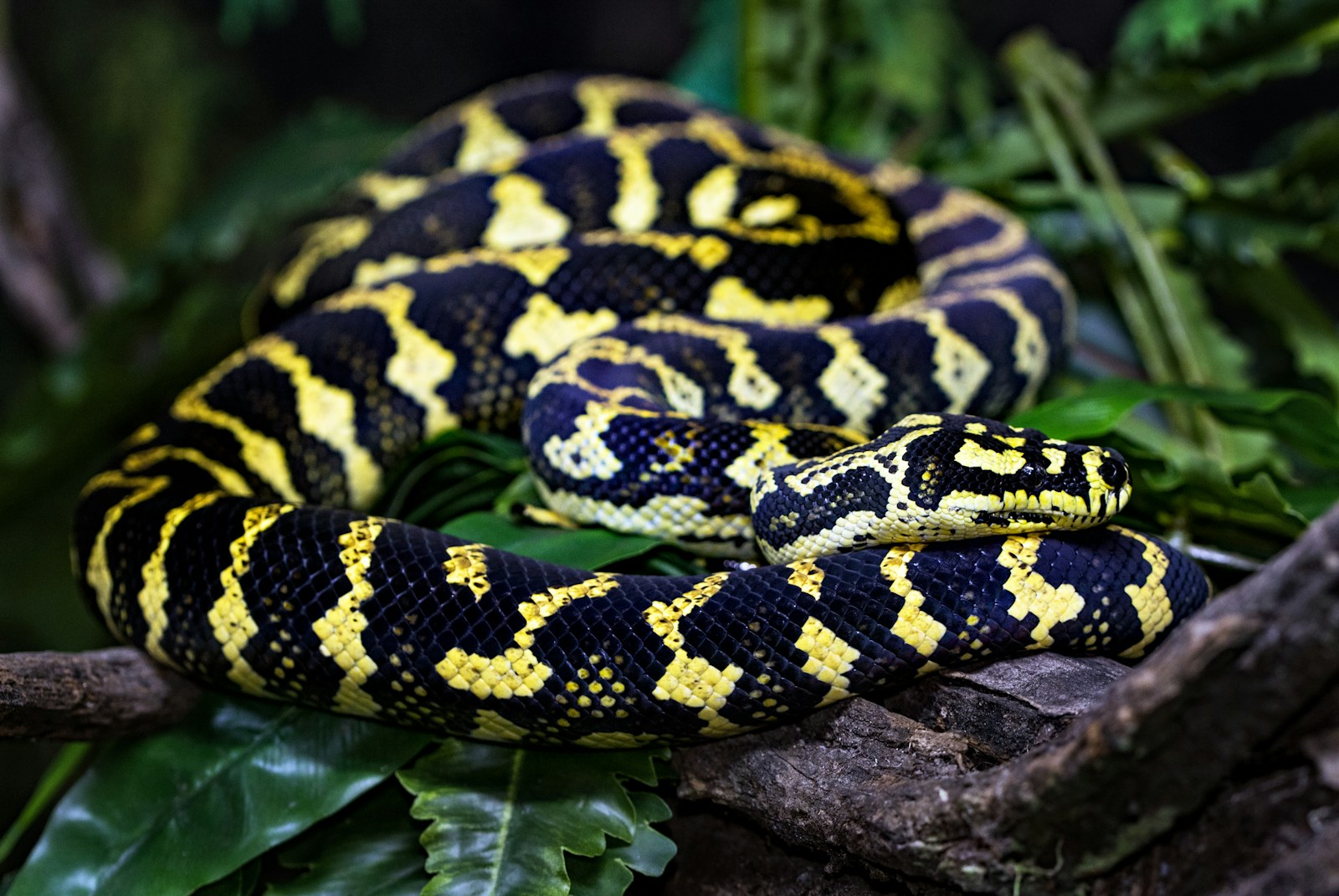In the dense rainforests of central Africa, among the rolling hills and misty valleys of Cameroon, lives the Bakweri tribe with a spiritual belief system unlike any other. At the center of their cosmology stands the mysterious and revered Python regius, known commonly as the ball python. Far from fearing these serpents as many cultures do, the Bakweri hold them sacred, believing these snakes are more than mere reptiles—they are spiritual guardians, protectors of human souls, and messengers between worlds. This ancient relationship between humans and serpents has endured for centuries, creating a fascinating cultural tapestry that intertwines daily life, spiritual practices, and environmental stewardship. The Bakweri’s reverence for these pythons offers a compelling glimpse into how indigenous beliefs can foster harmony between humans and wildlife, even as modern influences challenge traditional ways of life.
The Bakweri Tribe: Guardians of Ancient Serpent Wisdom

The Bakweri people have inhabited the fertile slopes of Mount Cameroon for countless generations, developing a rich cultural identity deeply connected to their natural surroundings. Living in this biodiverse region, they have cultivated intimate knowledge of the local flora and fauna, with the ball python occupying a position of particular significance. Their settlements, traditionally consisting of circular mud-brick homes with thatched roofs, are often designed with specific spaces dedicated to the potential visitation of these sacred serpents. Within their complex social structure, special roles exist for those who communicate with and interpret the messages believed to be delivered by the pythons. This harmonious coexistence has shaped not only their spiritual practices but also their approach to environmental conservation, as they view themselves as stewards rather than masters of the land they share with these divine creatures.
The Sacred Python: More Than Just a Snake
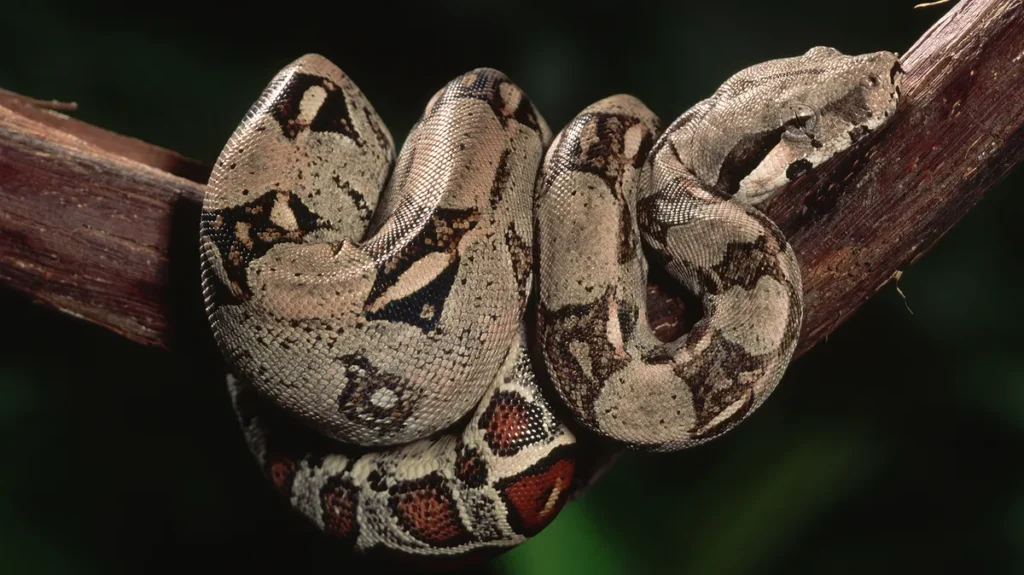
To the Bakweri, the ball python is known as “Njomba,” a term that translates roughly to “ancestor spirit embodied.” These docile, non-venomous snakes, with their distinctive brown and black patterned scales, grow to approximately 3-5 feet in length and are immediately recognizable to tribe members. Unlike Western perceptions of snakes as symbols of danger or deceit, the Bakweri see the python as the physical manifestation of benevolent ancestral spirits who have chosen to return in serpent form to guide and protect their descendants. The snake’s ability to shed its skin is interpreted as a powerful symbol of renewal and immortality, reinforcing the belief in the cyclical nature of life and death. Additionally, the python’s patient, observant nature is seen as emblematic of wisdom and thoughtful judgment, qualities highly valued in Bakweri society.
The Origin Myth: How Pythons Became Soul Protectors
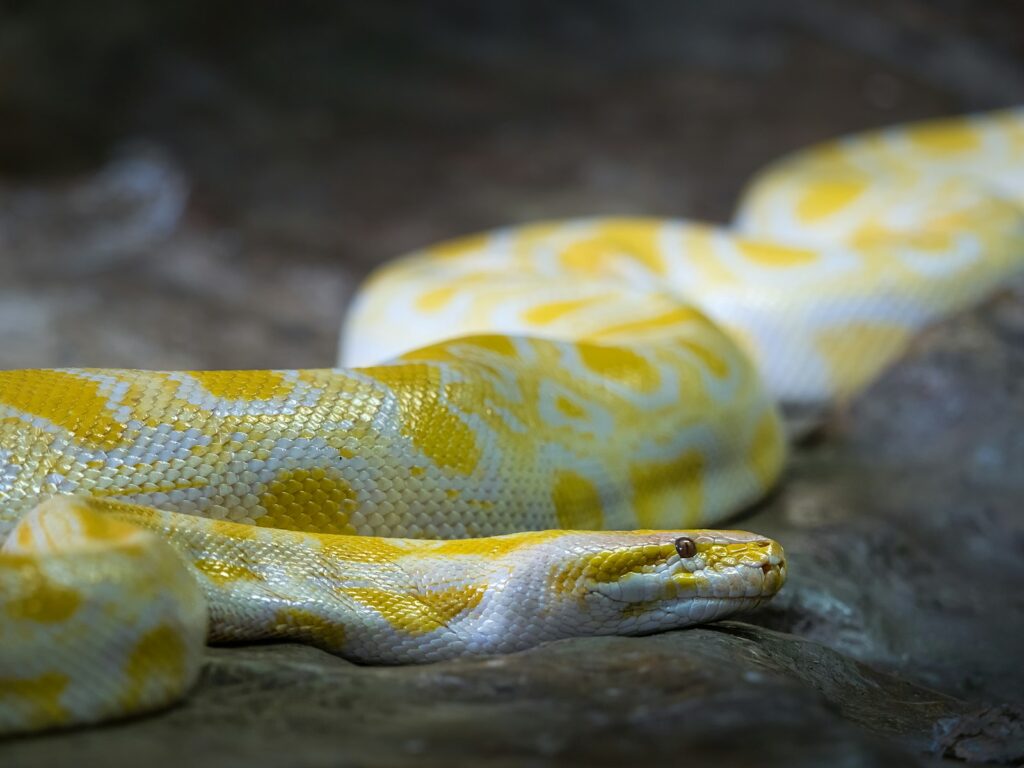
According to ancient Bakweri oral tradition, the special relationship between humans and pythons began during a catastrophic drought that threatened the tribe’s very existence. As the story goes, a young woman named Maloba was gathering the last remaining water from a drying stream when she encountered a python struggling in a shallow puddle. Despite her own desperate thirst, she used her water gourd to create a small pool for the serpent, saving its life. That night, the python appeared in her dream, revealing itself as the spirit of a great ancestor and promising eternal protection for her selfless act. The python led Maloba to a hidden spring, saving the tribe from certain death. Since that pivotal moment, the Bakweri have believed that pythons carry a portion of their souls, protecting them from harm and guiding them through life’s challenges. This foundational myth establishes the spiritual contract between humans and serpents that continues to this day.
Python Visitations: Messengers from Beyond
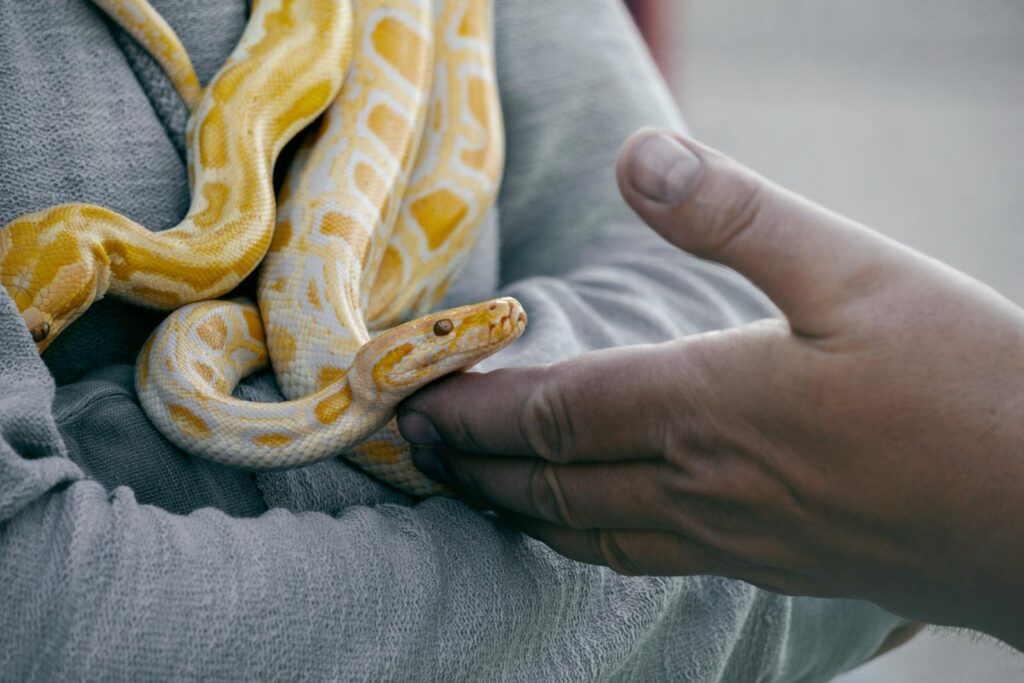
When a python enters a Bakweri household, it is never considered a random occurrence but rather a deliberate visitation carrying significant spiritual meaning. These encounters are treated with profound reverence and careful protocol, beginning with the immediate cessation of all activity and the summoning of a tribal elder or spiritual interpreter. The snake’s behavior—whether it coils in the corner, moves toward specific family members, or displays particular patterns of movement—is meticulously observed and interpreted as communication from the ancestral realm. Family members may present small offerings of milk or honey, traditional gifts that acknowledge the python’s divine status. The duration of the visit is believed to correlate with the importance of the message, with longer stays indicating matters of greater significance requiring careful attention and reflection.
Soul Protection: The Spiritual Mechanics

The Bakweri conceptualize the human soul as having multiple components, with one vulnerable element that requires external protection. According to their belief system, at birth, a portion of each person’s soul essence is entrusted to the care of the python spirits, creating a lifelong bond that transcends physical boundaries. This spiritual safeguarding is thought to shield individuals from harmful influences, including malevolent spirits, illness, and the negative intentions of others. Tribe members often describe feeling a distinctive sensation—a subtle warmth spreading across their chest—during moments when they believe their python guardian is actively intervening on their behalf. This supernatural protection extends beyond the individual to encompass entire family lineages, with specific pythons believed to watch over particular family groups for generations, maintaining a spiritual continuity that bridges past and present.
Rituals and Ceremonies: Honoring the Python Guardians
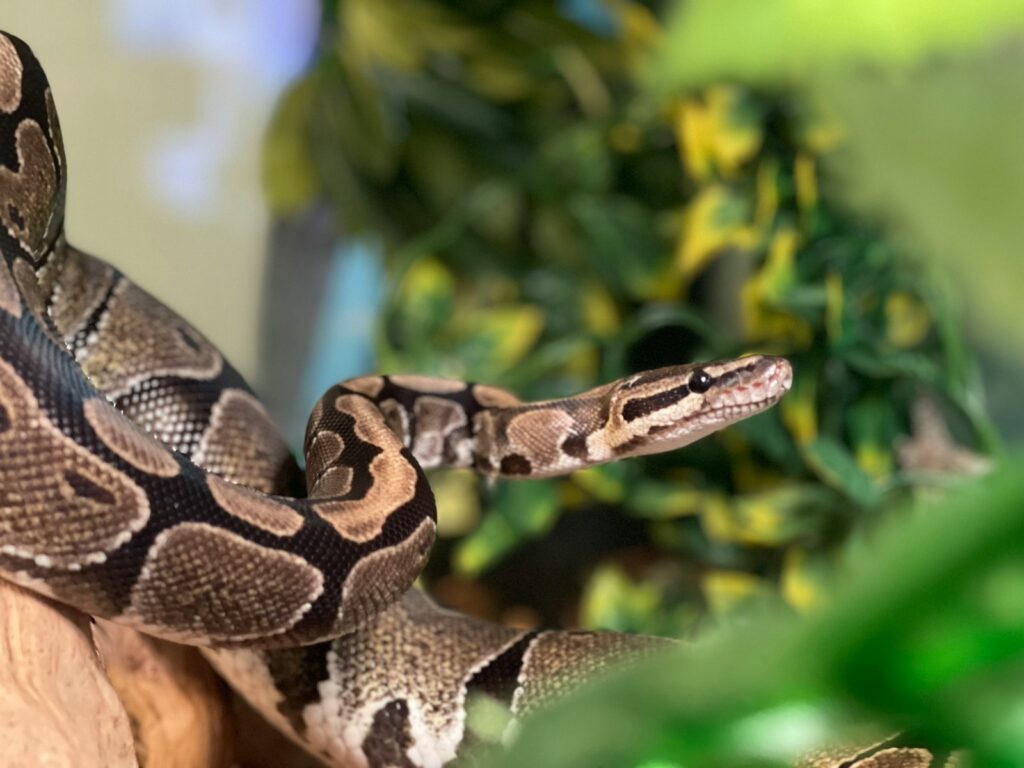
Throughout the year, the Bakweri conduct elaborate ceremonies to honor and strengthen their connection with their python protectors. The most significant of these is the “Njomba Mokweri” festival, held during the first full moon after the autumn harvest, when the entire community gathers to express collective gratitude for the pythons’ protection. During this three-day celebration, traditional dancers perform the sinuous “Python Dance,” their bodies moving in undulating patterns that mimic the serpent’s graceful movements. Special libations of palm wine are poured at sacred sites throughout the village, accompanied by offerings of eggs and honey—foods believed to be favored by the python spirits. Tribal elders also conduct private ceremonies at ancestral shrines, where they communicate directly with the python guardians, seeking guidance for community decisions and renewal of the protective covenant between humans and serpents.
The Python Priests: Specialized Intermediaries
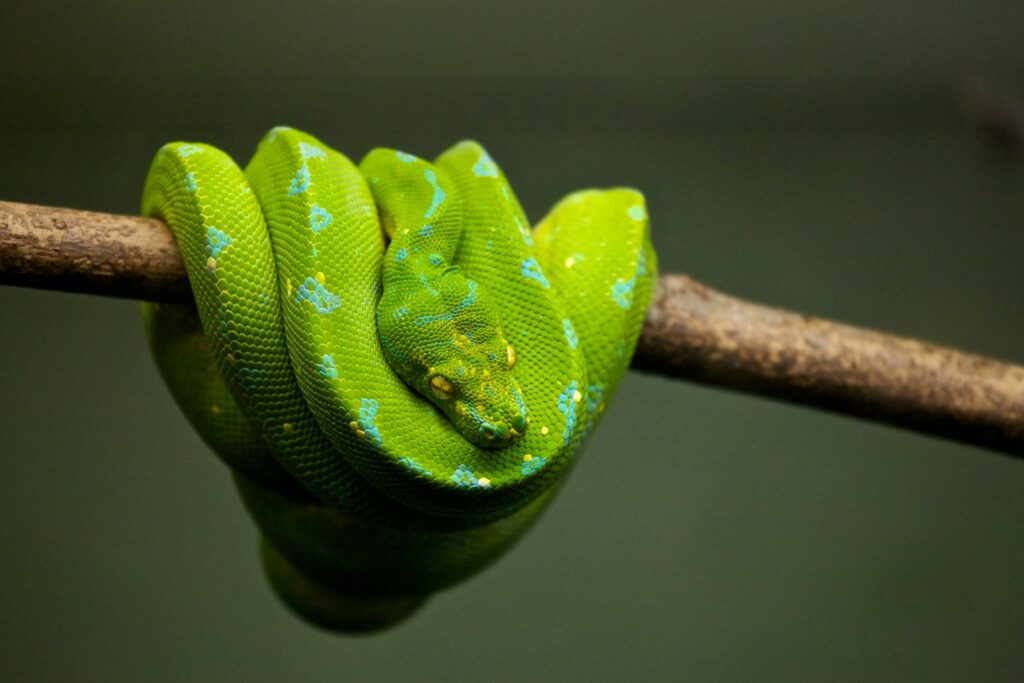
Within Bakweri society, certain individuals are identified from childhood as having special connections to the python spirits, often recognized through distinctive birthmarks resembling snake scales or through dreams featuring pythons. These chosen individuals undergo years of specialized training to become “Mokala Njomba” or Python Priests, learning the sacred language believed to facilitate direct communication with the serpent guardians. These spiritual intermediaries serve crucial roles during lifecycle events, including births, when they perform rituals to formally introduce newborns to their python protectors. They also conduct healing ceremonies, where their ability to channel the python’s protective energy is thought to expel illness and restore spiritual balance. During community crises, these priests may enter meditative trances, during which they claim to consult directly with the python ancestors, returning with guidance that shapes tribal decisions.
Conservation Connection: Ecological Protection Through Spiritual Belief
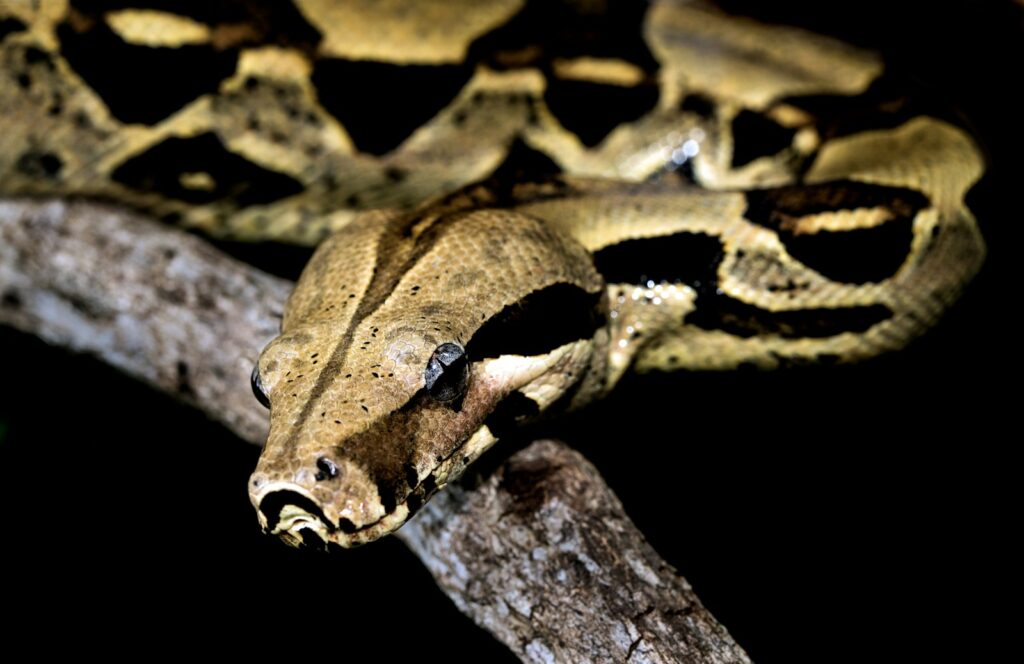
The Bakweri’s reverence for pythons has created a powerful conservation ethic that extends beyond the snakes themselves to encompass their entire habitat. Strict tribal taboos prohibit not only harming pythons but also destroying the forests they inhabit, effectively creating protected zones that have preserved biodiversity in the region for generations. Community members regularly monitor python populations, tracking their movements and health as indicators of broader ecological wellbeing. When habitat threats emerge, such as encroaching development or illegal logging, the tribe mobilizes with remarkable unity to defend these areas, citing their spiritual obligation to protect their soul guardians. Conservation biologists have noted that python populations in Bakweri territories remain significantly healthier than in surrounding regions, demonstrating how indigenous spiritual beliefs can translate into effective environmental stewardship.
Coming of Age: Python Initiation Rites
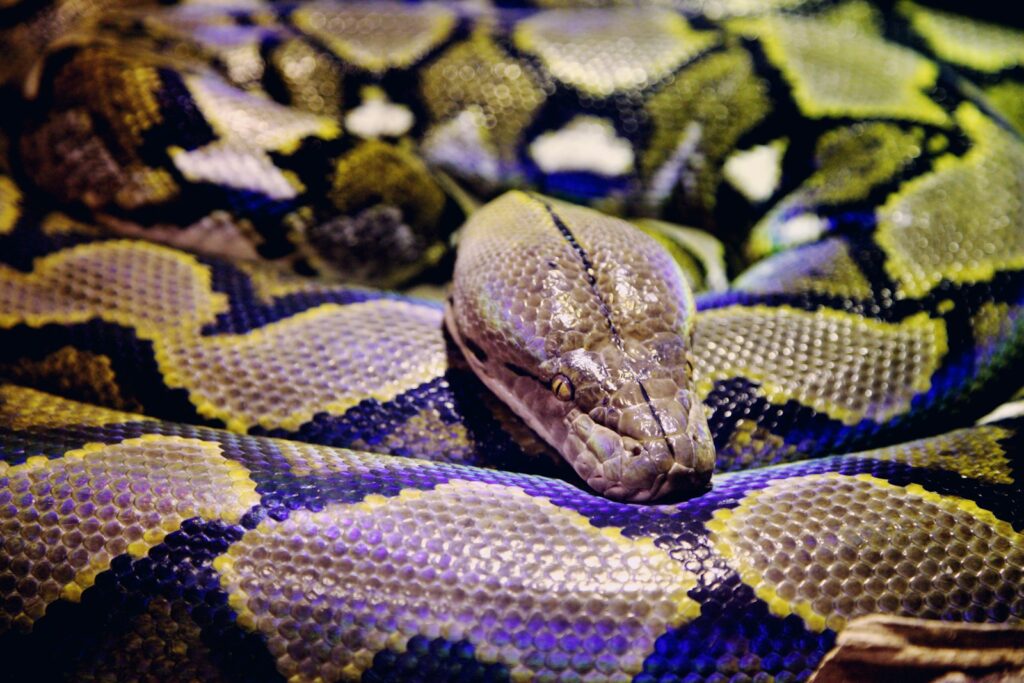
The transition from childhood to adulthood in Bakweri culture is marked by a profound spiritual experience centered around the python guardians. When young tribe members reach puberty, they undertake a sacred journey known as “Likombo la Njomba” or “The Python’s Embrace.” This rite of passage begins with a period of isolation and fasting in a forest sanctuary, where initiates meditate and prepare themselves spiritually for a deeper connection with their serpent protectors. Under the guidance of Python Priests, they participate in night-long ceremonies involving rhythmic drumming and chanting designed to induce a trance state. During this altered consciousness, many initiates report vivid encounters with their personal python guardian, receiving guidance, life purposes, and sometimes special healing abilities. Upon returning to the community, these young adults are recognized as having formed a mature bond with their protective serpent, signifying their readiness to take on adult responsibilities within the tribe.
Dreams and Divination: Pythons as Spiritual Messengers
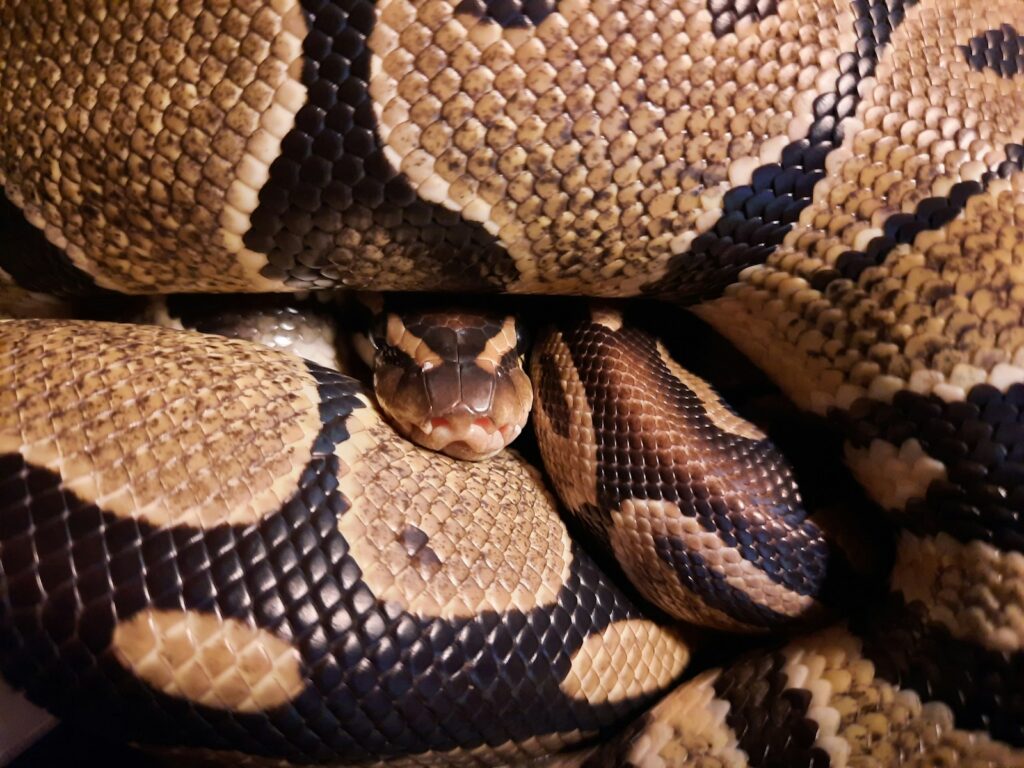
Dreams featuring pythons hold extraordinary significance in Bakweri culture, considered direct communications from the ancestral realm requiring careful interpretation. When a tribe member dreams of a python, they immediately consult with a specialized dream interpreter who analyzes various elements—the snake’s behavior, coloration, size, and setting—to decode the message being conveyed. Certain dream scenarios carry standardized meanings: a python shedding its skin might foretell an imminent personal transformation, while a python drinking from a clear stream could indicate forthcoming prosperity. Beyond dream interpretation, pythons feature prominently in various divination practices used to answer important life questions. One such method involves placing small objects representing different possible outcomes in a circular pattern and observing which one a specially trained python approaches first, its choice believed to reveal the path aligned with ancestral wisdom.
Modern Challenges: Preserving Ancient Beliefs in a Changing World
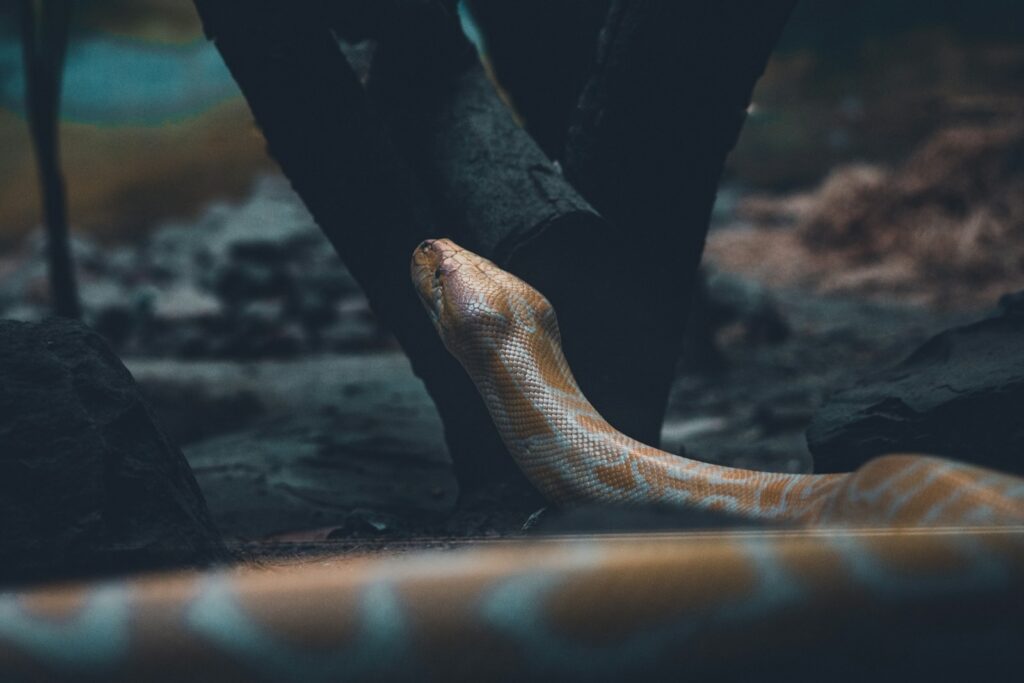
The unique spiritual relationship between the Bakweri and their python guardians faces significant challenges in the contemporary world. Christian missionaries have established a substantial presence in the region, introducing religious perspectives that often conflict with traditional beliefs in animal spirits and ancestral guardians. Economic pressures, including expanding agricultural development and resource extraction, threaten both python habitats and traditional tribal lands. Younger generations, increasingly exposed to global media and educational systems that emphasize scientific materialism, sometimes question the literal truth of python soul protection, creating intergenerational tensions within the community. Despite these challenges, tribal elders have implemented innovative approaches to cultural preservation, including python education programs in local schools and community-led ecotourism initiatives that showcase their unique spiritual heritage while generating sustainable income to support conservation efforts.
Scientific Perspectives: Understanding the Biological Basis of the Relationship

Anthropologists and ethnobiologists studying the Bakweri-python relationship have noted several fascinating biological factors that may have contributed to the development of this spiritual belief system. The ball python’s naturally docile temperament and reluctance to bite humans, even when handled, creates a stark contrast with more aggressive snake species, potentially predisposing humans to view them more favorably. These pythons display remarkable homing instincts, often returning to the same shelters repeatedly, which could reinforce beliefs about intentional visitations to specific households. Furthermore, pythons are natural controllers of rodent populations, providing tangible benefits to agricultural communities by reducing crop damage and disease vectors. Some researchers propose that the spiritual veneration of pythons represents an evolutionarily advantageous cultural adaptation that encourages protection of a beneficial species, demonstrating how indigenous belief systems often contain embedded ecological wisdom aligned with community wellbeing.
Global Significance: What We Can Learn from the Bakweri Belief

The Bakweri’s spiritual relationship with pythons offers valuable insights relevant to contemporary global challenges, particularly regarding wildlife conservation and cultural diversity. Their belief system demonstrates how spiritual frameworks can foster profound conservation ethics without requiring Western scientific rationales, suggesting that effective environmental protection can emerge from diverse cultural foundations. The python-human relationship also exemplifies a non-dualistic worldview where the boundaries between humans and animals are permeable, contrasting sharply with dominant Western perspectives that emphasize separation from nature. As climate change and biodiversity loss accelerate globally, the Bakweri model offers inspiration for reimagining human-wildlife relationships based on reciprocity and mutual protection rather than exploitation. Additionally, their enduring spiritual practices remind us of the importance of preserving indigenous knowledge systems as unique expressions of human cultural diversity and as repositories of ecological wisdom developed through centuries of close observation and coexistence with the natural world.
The Bakweri tribe’s relationship with their python guardians represents far more than a curious cultural footnote—it embodies a sophisticated spiritual ecology that has sustained both human community and natural environment for countless generations. Through their reverence for these serpents, the Bakweri have developed a worldview where human wellbeing is inextricably linked to the protection of other species, creating a powerful model of biocultural conservation. As our planet faces unprecedented environmental challenges, perhaps there is profound wisdom to be found in this ancient belief that our souls—our very essence—depend upon the wellbeing of the creatures with whom we share our world. The python guardians of the Bakweri remind us that humanity’s relationship with nature can be one of reverence rather than dominance, of protection rather than exploitation, offering a timeless lesson as relevant today as it was when the first python entered a tribal home carrying messages from beyond.

